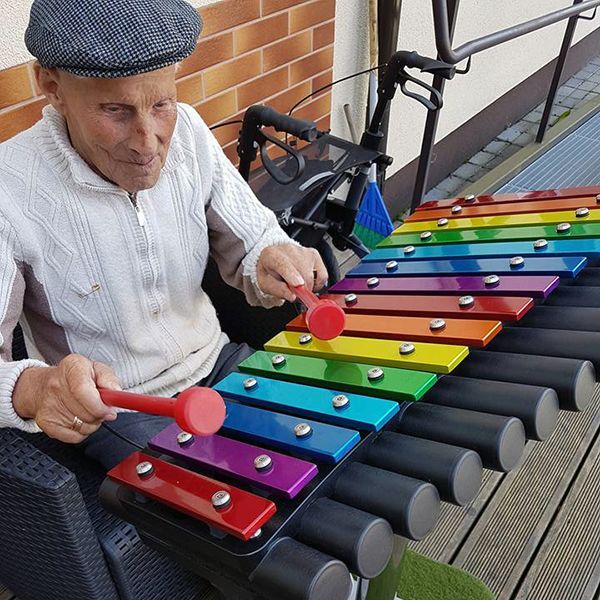
Let's Jam
Simply enter your name, email address, and click subscribe to get the latest product updates.
By clicking "Subscribe", you confirm that you have read and accepted our Terms and Conditions, Privacy Policy and Cookie Policy.
This week has been World Nursery Rhyme Week (10-14th November). A week-long celebration promoting the importance of nursery rhymes to the under 5’s.
Songs and rhymes for young children have been passed down for generations. They are fun, children love them, and they provide a warm, nurturing experience between parent and child. What we may not be aware of as we recite simple nursery rhymes or sing songs with children is they’re not just for fun, they have enormous educational value.
Short and sweet, they help children to learn language formation. They contribute to a child's spatial development when used with music and movement. Nursery rhymes also contain moral lessons to teach and are great for introducing counting and animal sounds.
When children hear nursery rhymes, they hear the sounds vowels and consonants make. They learn how to put these sounds together to make words. They also practice pitch, volume, and voice inflection, as well as the rhythm of language. Children develop their mouth and tongue muscles by using the different sounds in the rhyme. When singing nursery songs and rhymes with your child, you are engaged in a social routine that encourages turn-taking skills, which are critical for the development of conversation.
Using nursery rhymes and musical instruments in a music play session with your baby supports your infant’s need to play and socialise in a creative and exciting way – while encouraging the development of key motor skills, such as the fist grasp, forefinger and thumb grasp. Playing musical instruments can also help baby develop hand-eye coordination as well as strength, balance and agility. Singing nursery rhymes and creating music together is a fun, positive experience for you both to share.
Having said all that, it’s probably best not to dwell too much on the actual words used in certain nursery rhymes, some convey a pretty macabre sense of humour! They have been so ingrained in us since childhood that we hardly notice that babies are falling from trees, women are being held captive, live animals being cooked, some slave labour and references to the Bubonic plague!